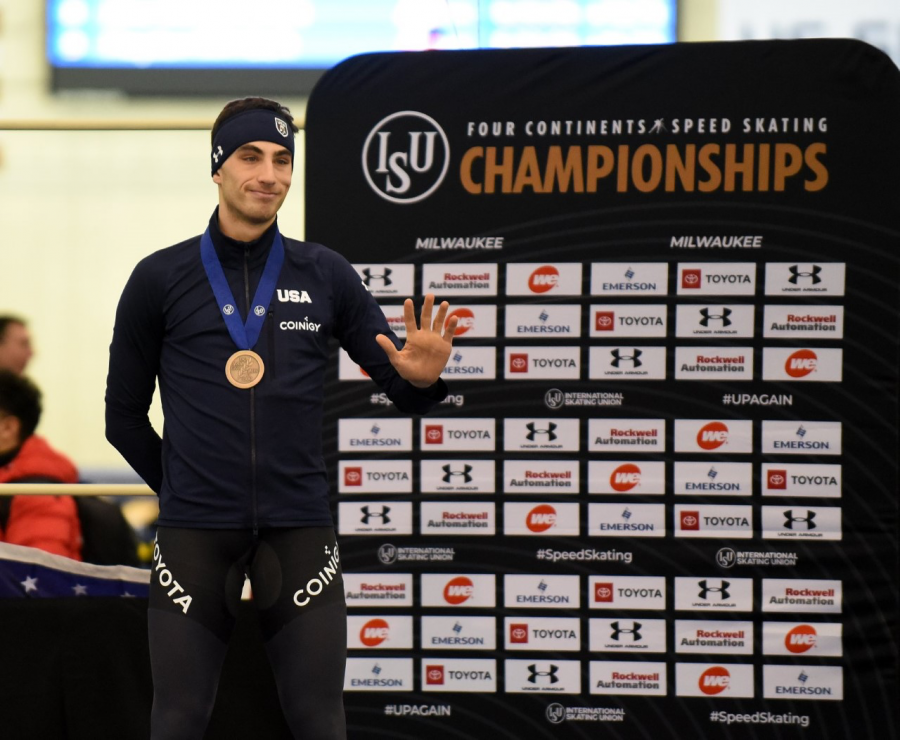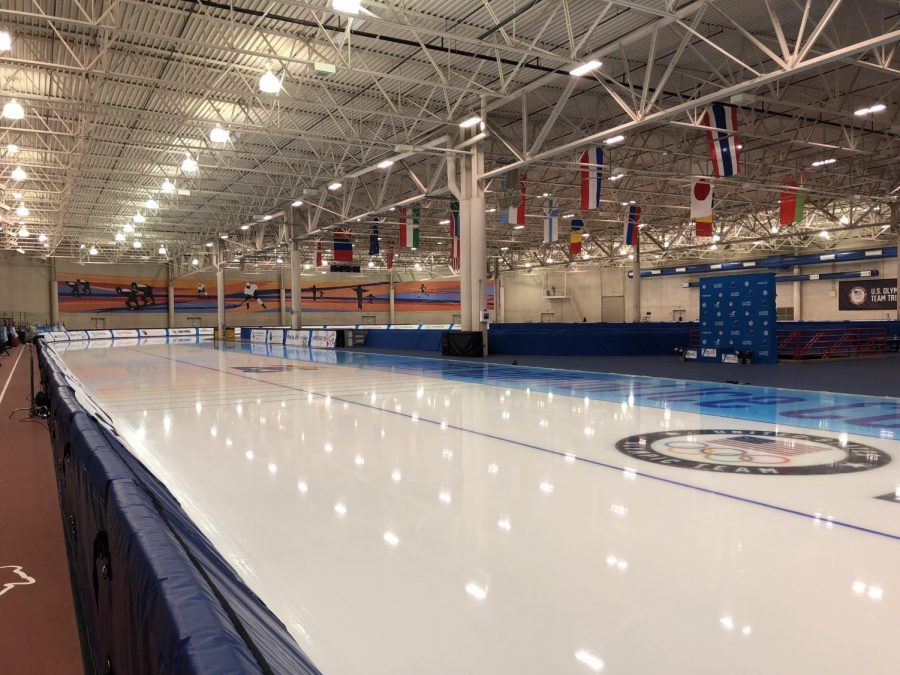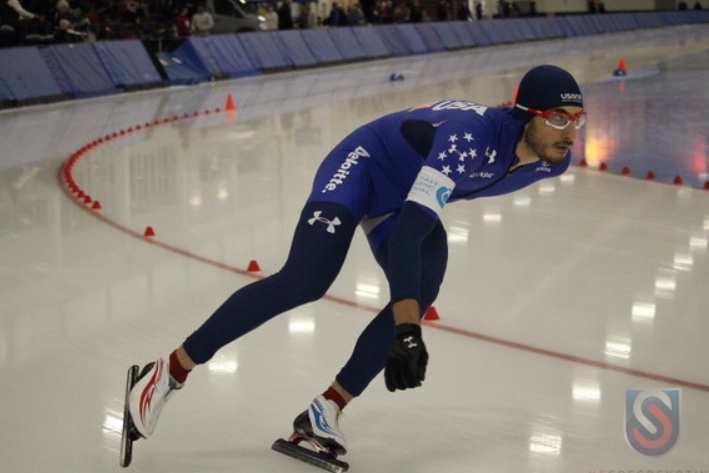Among Marquette’s various club sports, ranging from basketball and volleyball to quidditch and sailing, speedskating is one sport that is missing. However, that has not stopped one senior from competing.
Emery Lehman, a senior in the College of Engineering, began skating at a young age and progressed quickly, notably having competed in two Olympic Winter Games. His early success led him to continue his journey at Marquette, where he knew he could continue to compete.
“I looked at schools in the Milwaukee area for training because I wanted to do school and training,” Lehman said.
Lehman’s second year at Marquette brought a new set of challenges after he fell ill with mono.
“I was unable to train for quite a while, which kind of cut my season short,” Lehman said. “It was really tough to deal with, and I lost my funding from the Olympic committee so I had no outside support besides my parents, which definitely threw me off track.”
Lehman said the sickness and the time off from training changed him.
“When I was younger, I medaled a lot and made an Olympic team at a really young age,” Lehman said. “My skating and my improvement took a really big hit after I got sick because I never was really quite the same.”
Gabriel Girard, coach of U.S. Speedskating National Team, began working with Lehman in May 2019. He said Lehman’s early success was unique.
“At 17 years old, he was already at the Sochi 2014 Olympics, which is very unusual in this sport,” Girard said. “Prior to our collaboration, his best moments as an athlete went back to his Sochi 2014 years, where he was still a junior (in high school).”
Girard said he is trying to switch up Lehman’s approach to the races as continues his training.
“Right now, he’s a senior. He’s been working a lot on what it means to race against other seniors, to have an approach that is more planned, more monitored and built for him to maximize his performances,” Girard said.
As Lehman is set to graduate in May, his speedskating career has been off and on with the balance of training and studying, which Girard said is not an easy task. The coach said he admires Lehman for how he competes against professional athletes while also continuing with his academics.
“It brings a nice balance to his life. To me, being a balanced athlete is a part of being a successful athlete,” Girard said. “In a sense, when you have a bad day at the rink, then you have something to shift your mind to. But also, if one day you get injured and your athlete career is finished, then you got something to move on to directly.”
Joseph Dorff, one of Lehman’s close friends and a Marquette alum, said Lehman has been training hard ever since they met each other in their first year of school.
In addition to competing in the Olympics, Lehman traveled the world from May 2019 to Jan. 2020 for speedskating, becoming a National Champion in the 5k and 10k while qualifying for World Championships in the 1500m and Team Pursuit.
From Jan. 31 to Feb. 2 Lehman returned to Milwaukee to competed in the ISU Four Continents Championship, placing third in the Men’s 5,000m race. Then he headed to the ISU World Cup #5 in Calgary, California, Feb. 7 and finished with a personal best in the 1,500m. The next weekend he finished off the season at thr World Championships in Salt Lake City, placing 16th in the world for the 1,500m and fifth for Team Pursuit.
“He’s always been very goal-driven and busting his butt working out,” Dorff said. “Seeing where he was, the effort he’s put in and growing as a person, it’s been pretty remarkable to see.”
Dorff is now a marketing and business development manager at Coinigy, a Milwaukee-based company that is providing Lehman with his first individual sponsorship. Dorff worked with the cryptocurrency company through a business class during his senior year at Marquette.
“Emery and I were kind of just talking, and I said, ‘Let’s try and get you some kind of sponsorship deal,’” Dorff said. “It was a couple of weeks before his first races so I said, ‘Well, let’s talk to my bosses and see what we can do.’”
During the non-Olympic years, it is hard for an athlete to get sponsorships, Lehman said.
“It was actually really huge to get that support that far out from the Olympics,” Lehman said. “Hopefully I can help them out as much as they helped me out.”
Lehman said his skating career is still developing, and he doesn’t plan to stop until he thinks he can’t get any better.
“Until that happens, however, I don’t know what my limit is,” Lehman said. “Obviously, it’s to get better and better every year, but I’m just focused on improving on my time from the last two competitions.”
Dorff said he recognizes that the kind of progress his friend has had is pretty unique.
“This past year, (Lehman) has been killing it,” Dorff said. “Outperforming, training his butt off, moving to Canada. I’ve seen firsthand how hard this kid’s been working, and it’s awesome to see his hard work pay off now.”
With the current situation of COVID-19, the International Olympic Committee has postponed the 2020 Tokyo Olympics, but Lehman said he doesn’t believe it will impact him too much since it is his offseason.
“I’ve been trying to stick to what I normally do. Especially in the wintertime, I do a lot of biking on the trainer. I’m cooped up in my apartment, but I’m still riding the bike,” Lehman said. “I am moving out to Salt Lake City at the end of the semester in May, so hopefully everything is on the way back to being normal by then.”
This story was written by Bryan Geenen. He can be reached at bryan.geenen@marquette.edu.





